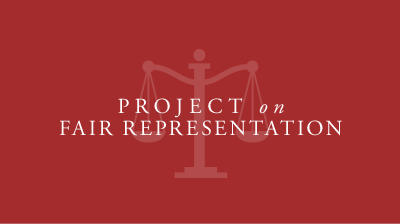Newsroom


If the Supreme Court rules this term that affirmative action is unconstitutional, relying on a case called Students for Fair Admissions v. Harvard, one response will be to chalk it up to the changed composition of the court. After Donald Trump added three justices, legal arguments that had repeatedly failed to convince justices over 45 years of constitutional wrangling suddenly fell on more sympathetic ears. That view may be true in part. But it’s inadequate to describe why affirmative action…
June 8, 2023
Why have today's most celebrated intellectuals ignored the historical record to recast it as a reactionary idea? Coleman Hughes explains. In a few months, the Supreme Court will strike down or reaffirm race-based affirmative action in college admissions. The anticipation surrounding the Court’s decision—in two separate cases pitting Students for Fair Admissions against Harvard and the University of North Carolina—has reignited the long-running national debate over color-blindness. The question is: Should universities be permitted to discriminate on the basis of race?…
December 20, 2022
AUSTIN, Texas, April 19, 2022 /PRNewswire/ -- Today, the Project on Fair Representation (POFR), a not-for-profit legal defense foundation that believes that racial and ethnic classifications and preferences are unconstitutional, unfair, and harmful, sent a letter warning the Oregon Health & Science University (OHSU) that its new "30-30-30 plan" violates the Fourteenth Amendment of the U.S. Constitution because it creates a racially discriminatory admissions program and imposes an illegal racial quota. Boyden Gray & Associates, a Washington, DC-based law firm, is providing counsel to…
April 19, 2022
Counsel
The Coca-Cola Co. confirmed Monday it is not implementing a controversial diversity initiative requiring outside counsel to allocate a portion of work to Black attorneys and other lawyers from underrepresented groups. The beverage giant pressed pause on the proposed policy a few months after it was introduced in January 2021 by the company's then-general counsel Bradley Gayton, who was replaced in April 2021. The company clarified to Law360 on Monday that the initiative will not go ahead, as first reported…
March 28, 2022
Today, on behalf of the Project on Fair Representation (POFR), Boyden Gray and Associates PLLC wrote a detailed letter to the legal departments of Morgan Stanley and Princeton University questioning the legality of Morgan Stanley’s 2022 Freshman Enhancement Program. The letter is attached. The letter notes that “Morgan Stanley and various prestigious colleges and universities, including Princeton University, have been promoting an internship program at Morgan Stanley that explicitly excludes applicants on the basis of race, ethnicity, and sexual orientation.”…
February 15, 2022
AUSTIN, Texas, Jan. 19, 2022 /PRNewswire/ -- Late yesterday, the Project on Fair Representation sent a letter to New York Department of Health Acting Commissioner Mary T. Basset warning the Department about serious legal problems in the Department's new racially discriminatory guidance on the prioritization of COVID-19 treatments. The letter notes that the Department's policy already has resulted in a lawsuit and warns the State will surely be sued again if it continues to prioritize treatments for certain racial and ethnic groups over others. Specifically,…
January 19, 2022
(Arlington, VA) Today, the Project on Fair Representation (POFR) released a White Paper urging states and sub-jurisdictions to use citizen voting age population rather than total population as the metric for redistricting U.S. election districts. The White Paper can be found at ProjectonFairRepresentation.org. Every ten years States must redistrict to account for population shifts and ensure that districts contain equal population. Traditionally, States have used a “total population” measure as the basis for redistricting. But total population is riddled with problems.…
April 12, 2021
Today, the Project on Fair Representation (POFR) filed an amicus brief in State of New York, et al v. the United States Department of Commerce, No. 1:18-CV-2921(JMF). The brief can be found here. In December 2017, the Department of Justice urged the Department of Commerce to reinstate a previously-used citizenship question on the 2020 decennial census in order for DOJ to better enforce certain provisions of the Voting Rights Act (VRA). In March 2018, Commerce Secretary Wilbur Ross agreed to DOJ’s…
June 27, 2018
(Washington, DC) Today, the Project on Fair Representation announces the filing of a lawsuit in federal court challenging the racial and gender quotas for board membership on the Texas State Bar. The complaint can be found at www.projectonfairrepresentation.org. Under Texas law, the Board of Directors of the State Bar must include “four minority member directors appointed by the President of the State Bar.” §81.020(b). The law states that only “female, African-American, Hispanic-American, Native American, or Asian-Americans” will be considered for…
December 5, 2016
(Washington, DC) Today, the United States Supreme Court upheld race-based affirmative action in admissions at the University of Texas at Austin. The Project on Fair Representation, a not-for-profit legal foundation based in Arlington, Virginia, provided counsel to Abigail Fisher who challenged the constitutionality of the UT admissions policy. Abigail Fisher said, “I am disappointed that the Supreme Court has ruled that students applying to the Univ. of Texas can be treated differently because of their race or ethnicity. I hope…
June 23, 2016
https://www.youtube.com/watch?v=A-C_rmm1NpI Abigail Fisher talks about her role in Fisher v. University of Texas.
December 1, 2015
The US Supreme Court announced on June 29, 2015 that it would hear arguments in Abigail Fisher v. Univ. of Texas (Fisher II). This is the second time the justices have considered Abigail Fisher’s appeal from a ruling out of the Fifth Circuit Court of Appeals. Ms. Fisher sued the Univ. of Texas in 2008 after she was rejected as an undergraduate applicant. She alleged that UT’s use of race-based affirmative action unfairly denied her a place at the university. She…
June 29, 2015
(WASHINGTON, DC) Today, the Project on Fair Representation, a not-for-profit legal defense foundation, filed a certiorari petition to the U.S. Supreme Court on behalf of Abigail Fisher in Fisher v. Univ. of Texas. (Fisher II) In 2008, Ms. Fisher sued the Univ. of Texas after she was denied admission to the freshman class. She argued that her race or ethnicity should not have been a factor UT considered when she and every other applicant sought “holistic” admission outside of the…
February 10, 2015
Shelby County, Alabama challenged the constitutionality of certain sections of the Voting Rights Act. The US Supreme court ruled that Section 4 of the Voting Rights Act is unconstitutional and that its formula can no longer be used as a basis for subjecting jurisdictions to preclearance. Read the US Supreme Court opinion
January 22, 2015